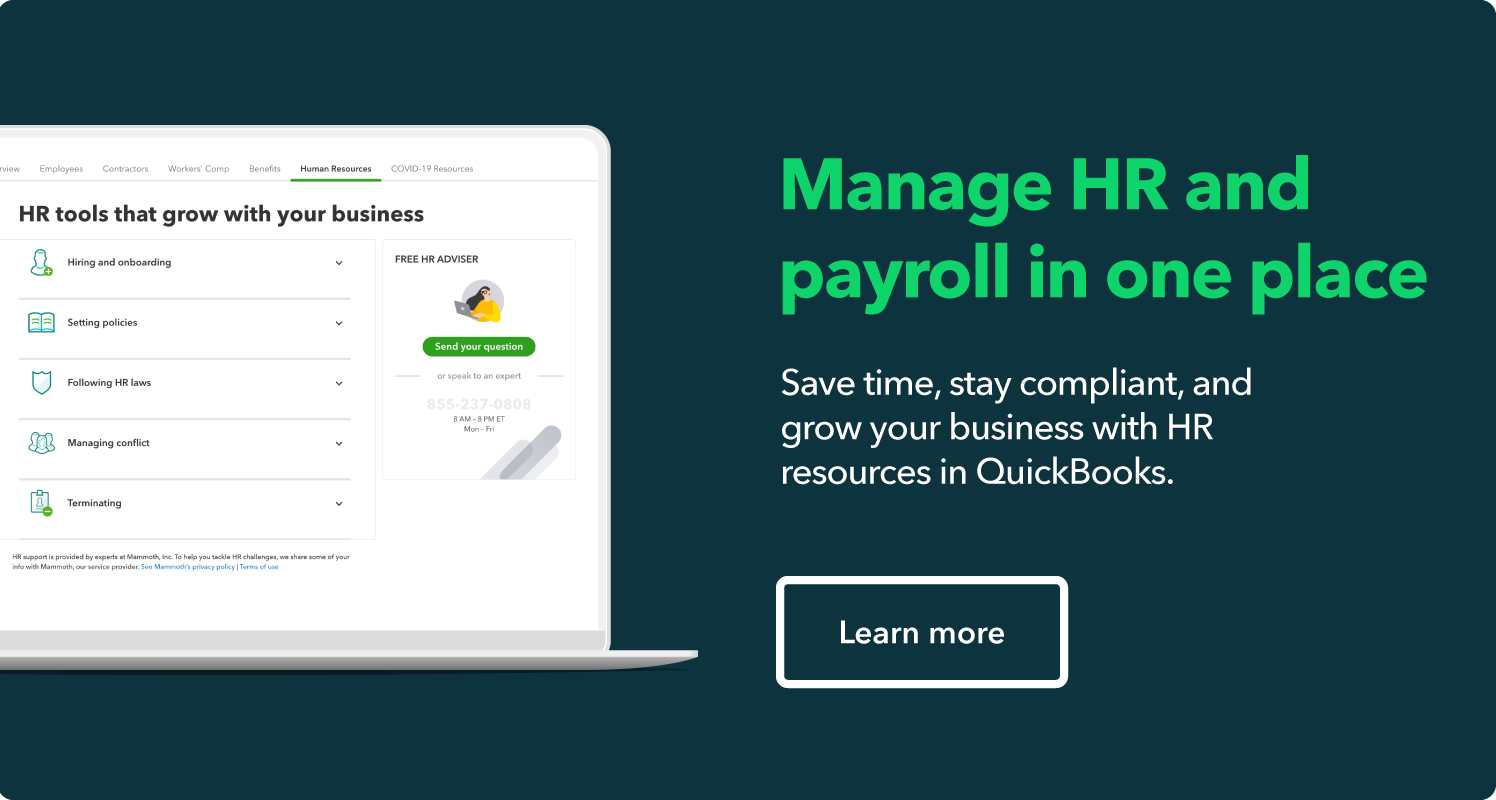Starting a business in Nova Scotia can be an exciting step in your career path. To ensure you’re beginning on the right foot, you'll need to know your province's specific payroll regulations to avoid any setbacks down the road. This includes provincial income tax, wages, working hours and more. Take a read through this guide so you can be prepared for one of the biggest expenses your business will encounter; it’s payroll.

Nova Scotia Payroll Guide
Minimum Wage in Nova Scotia
As of April 1, 2021, employers must pay employees the minimum wage of $12.95 per hour. Any time there is an increase in minimum wage, the Nova Scotia government will notify the public of this increase in January and it will take effect on April 1st of that same year.
The minimum wage order instructs employers on how much they are allowed to take from an employee’s wage for room and board that the employer provides. These figured amount to:
- $68.20 for board and lodgings each week
- $55.55 for board only for each week
- $15.45 for lodging only for each week
- $3.65 for a single meal
An employer cannot deduct an employee’s wage for a meal they did not receive.
The minimum wage in Nova Scotia for construction, and property maintenance work is $11.85 and the minimum wage for logging or forest operation is $11.85.
Hours of Work
Under the Labour Standards Code employers must grant all employees a rest period at least 24 consecutive hours every 7 days, applying to all normal circumstances. However, the day of rest rule does not apply for the following types of employees:
- The majority of farm employees
- Employees that work on a fishing boat
- Commissioned salespeople working outside of the employer’s place of business
- Students in training and practitioners of architecture, professional engineering, law, medicine, psychology, dentistry, chiropody, public or chartered accounting, surveying or veterinary science
- Employees working in a private home responsible for domestic services or provide personal care to household’s immediate family members and work 24 hours or less per week
- Employees working at offshore oil and gas companies while under the jurisdiction of the Canada - Nova Scotia offshore Petroleum Board
- Athletes engaged in activities related to their athletic endeavours
In emergency situations an employer can call an employee to work more than six days in a row. In such circumstances, the employer can dictate only as much work as is needed to avoid interference with the ordinary business operations. However, employers still have to follow the break and overtime rules set out.
Employees are entitled to an unbroken half hour break every 5 consecutive hours of work. Employees should not be working more than 5 consecutive hours without an uninterrupted break.
Typically, employers are not required to pay employees for these breaks. However, should an employee be required to stay on a job site during the break and is under the control of the employer and be available to work if necessary, then the employee must be paid for this break.
Overtime
Employees that fall under the following categories are entitled to an overtime rate of 1 ½ times their minimum wage after 48 hours have been worked in one week:
- Gas and oil employees
- Those employed in a confidential capacity, including managers, supervisors and employees
- Transport workers
- Fish and agricultural processors, but not meat
- Flat-rate auto mechanics and auto body technicians
- Certain types of professionals and their trainees
- Information technology (IT) professionals, not including those that provide technical support or basic operations
- Shipbuilders and related employees
Other types of employees should receive 1 ½ times their regular wage after 110 hours worked in a two-week period include:
- Workers restoring, maintaining, or constructing roads, streets, sidewalks, buildings, and bridges
- Workers doing paving of all sorts
- Sewer and water installer
- Snow removal and landscaping employees
- Saw mill workers
- Machine shop workers and metal fabricators
Finally, the Nova Scotian overtime rules do not apply to the following types of employees:
- The majority of farm employees
- Apprentices employed by an apprenticeship agreement under the Apprenticeship and Trades Qualifications Act
- Individuals receiving training from government sponsored or approved plans
- Workers at non-profit playgrounds and summer camps
- Car and real estate salespeople
- Commissioned salespeople working outside the employer’s place of business, but not salespeople on established routes
- Workers on a fishing boat
- Insurance agents licensed by the Insurance Act
- Employees working for a householder doing domestic service or providing personal care to immediate family members and/or that work 24 hours or less per week
- Workers in the forest and logging industry
- live-in personal care and live-in health providers
- Superintendents and janitors in buildings including their residence
- Athletes engaged in activities related to their athletic pursuits
- Employees working under collective agreements.
Workers Compensation Nova Scotia
A majority of employers who work in Nova Scotia are required to register their business/firm with the Workers' Compensation Board of Nova Scotia and pay premiums. The Maximum assessable earnings amount for 2021 is $64.500 (up from $62,000 in 2020). Coverage is mandatory for employers who:
- Conduct business in a mandatory industry (e.g., hotels, restaurants, supermarkets, fishing, trucking, construction and other manufacturing).
- Have three or more workers at a given time.
The WCB has a partnership with Canada Revenue Agency (CRA) that allows employers to report payroll and pay WCB premiums through CRA. The role of the CRA is to accept remittances from employers on the WCB’s behalf.
In most cases, the schedule follows the same you use to report to the CRA. Currently, there are 6 reporting frequencies:
- monthly
- quarterly
- twice a month (Threshold 1)
- four times a month (Threshold 2);
- bi-weekly payroll (Threshold T2B); and
- semi-monthly payroll (Threshold T2S).
For a complete list of how to prepare and submit your remittance form to the WCB see this link.
Payroll Deductions and Remittances Nova Scotia
Payroll deductions that can be taken from employees in Nova Scotia include:
- Statutory deductions (income tax, EI, CPP)
- Court ordered deductions (ie garnishment)
- Deductions that provide benefits to employees (ie health plans)
- Charges covering lodging and board as authorized under the Minimum Wage Orders
- Recovery of overpayments and pay advances
- Charges from employee purchases from the employer’s business account, as long as there is clear agreement between employer and employee that these can be deducted
- Charges covering dry cleaning of woollen or heavy material uniforms
Such deductions are allowed even when they bring the employee’s wages below the minimum wage.
Pay Statements
Employers must provide employees pay stubs when paying their wages. The information on the pay stub needs to include:
- the pay period in which the employee is being paid for
- the total number of hours the employee worked and their wage rate
- all deductions made from the employee's pay
- Gross amount the employee is being paid after deductions
Employers can provide wages through direct deposit as long as employees are able to access their pay stubs.
Employers are required to keep employment records illustrating employees receive the benefits they are entitled to under the Labour Standards Code. Employers must keep these records at their main place of business for at least 36 months after the work has been performed. Employers must also keep records of the following information:
- A list of all employees, including their age, sex, and last known home address
- A record covering all wage rates, hours of work, leaves of absences, vacation periods, and vacation pay for each employee
- The dates each employee began employment, and if an employee no longer works at the business, their last day of employment
- Records of when employees were terminated or laid off, and the dates these employees received their notices of termination
- The amounts each employee has been paid
Should employers use a recruiter to hire new employees, they must also keep the following records for 36 months after the work has been performed:
- The name and address of any persons the employer paid a recruitment fee to, including the date and amount paid
Leave of Absence in Nova Scotia
Employers are required to give employees two weeks of vacation time after a 12 month work period.The vacation time must be given within 10 months following the 12-month earning period. When an employee has worked for an employer for 8 years, the employee must receive three weeks vacation time.
Under the Labour Standards Code, employees that qualify will receive six holidays with pay: New Year’s Day, Nova Scotia Heritage Day, Good Friday, Canada Day, Labour Day, and Christmas Day.
For employees to qualify for these paid holidays, they must:
- Be entitled to obtain pay for at least 15 of the 30 calendar days prior to the holiday
- Have worked on their last scheduled shift/ day prior to the holiday, and on the first scheduled shift/day after the holiday
Other types of leave that employees of Nova Scotia are entitled to include:
Termination Notice
QuickBooks Online payroll software will allow your business to run efficiently by streamlining your payroll process and overall financial needs. You will be able to easily pay employees right from QuickBooks Online as well as gain access to other features like filing taxes, creating year end forms, complete time tracking, and so much more. Try it today.



